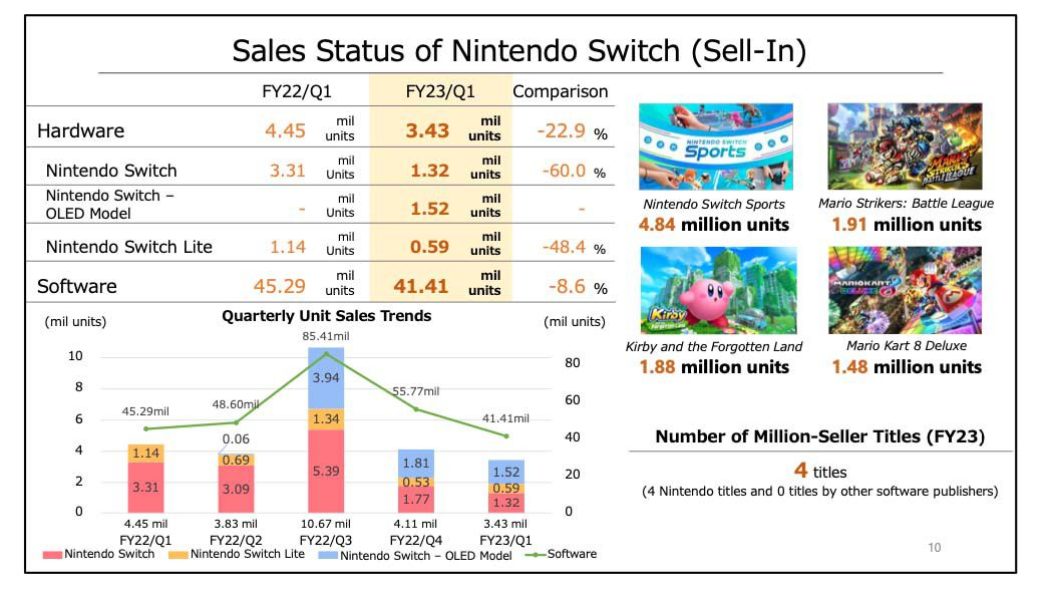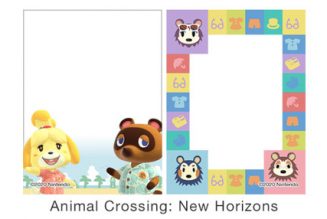Nintendo continues to struggle to hit its Switch production targets as a result of the global chip shortage, which contributed to a near 23 percent decline in console sales to 3.43 million in the three months ending June 30th, the company reported today.
Sales of the standard Nintendo Switch were down 60 percent to 1.32 million units in the quarter, while sales of the Switch Lite were down nearly 50 percent to 0.59 million. The Switch OLED, which only went on sale last October, made up some of the shortfall with 1.52 million units sold. Software sales were also down by 8.6 percent to a little under 41.5 million units. The company still expects to sell 21 million consoles throughout the course of its year ending March 2023.
“Production was impacted by factors such as the global shortage of semiconductor components, resulting in a decrease in hardware shipments and subsequent decline in overall sales,” Nintendo said in its earnings release. It said it expects chip procurement to “gradually improve from late summer towards autumn.”
:no_upscale()/cdn.vox-cdn.com/uploads/chorus_asset/file/23919777/Screen_Shot_2022_08_03_at_9.11.59_AM.jpg)
The quarter coincided with a quieter period for game releases. Nintendo Switch Sports was its best seller with 4.84 million units, followed by Mario Strikers: Battle League and Kirby and the Forgotten Land with 1.91 and 1.88 million respectively. Mario Kart 8 Deluxe, a game that was released over five years ago in April 2017, sold 1.48 million units in the quarter. Nintendo has now sold over 111 million Switch consoles in total, and says that “demand remains stable” globally despite the age of the machine.
Bloomberg reports that these results contributed to Nintendo’s earnings falling short of analyst estimates. Operating profit sat at 101.7 billion yen (around $764 million), short of the 115.2 billion yen ($865 million) expected, while sales were at 307.5 billion yen (around $2.3 billion), compared to average estimates of 332.1 billion yen (around $2.5 billion).
Nintendo isn’t alone in seeing its sales falter this quarter. Sony reported last week that it has seen software sales plummet by 26 percent and revised its annual profit forecast down 16 percent. And that’s from a company which released a brand new console less than two years ago, compared to Nintendo’s five-and-a-half-year-old Switch. Market research firm NPD reported this week that US spending on video games fell 13 percent year over year in Q2 2022.









